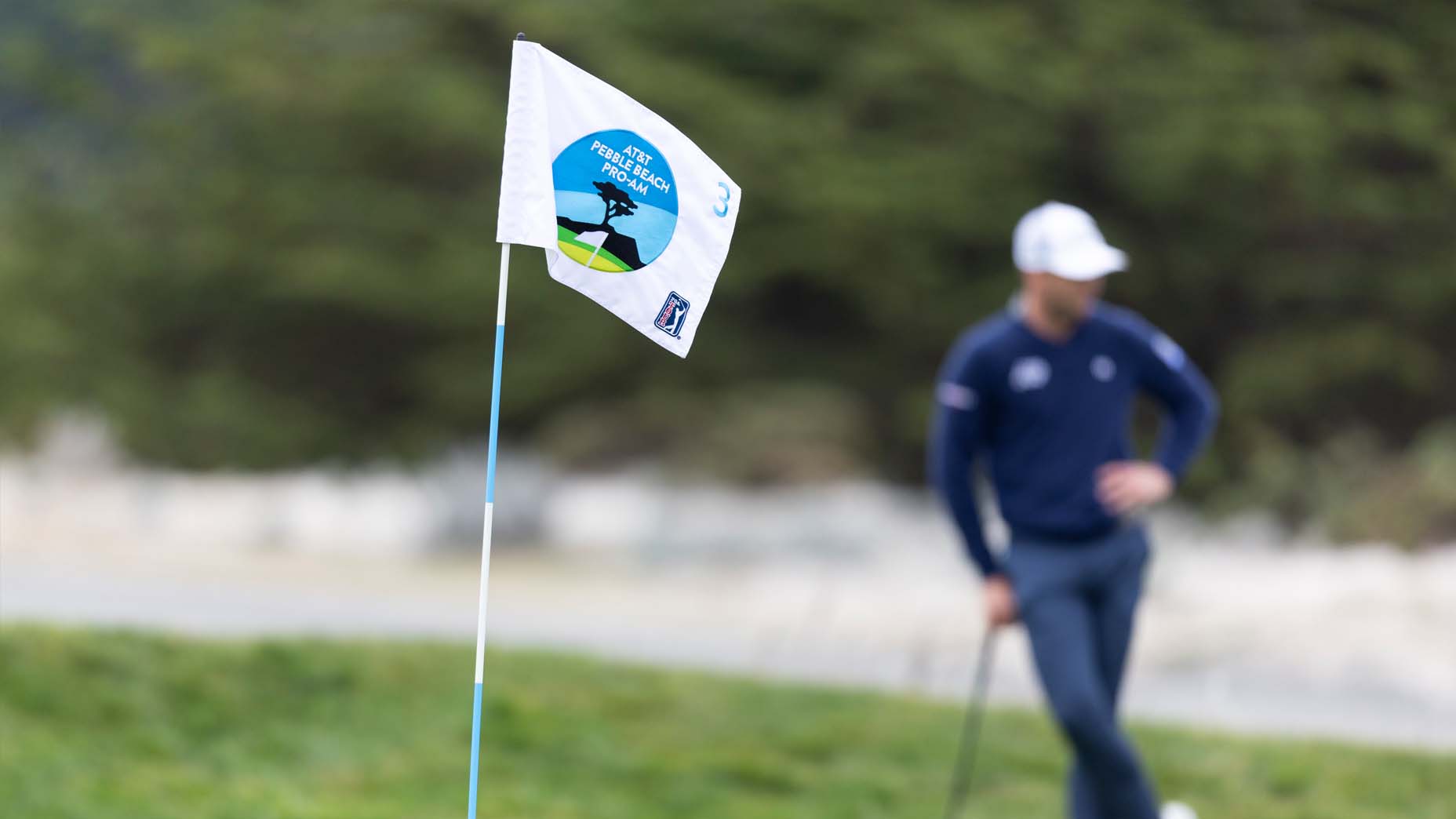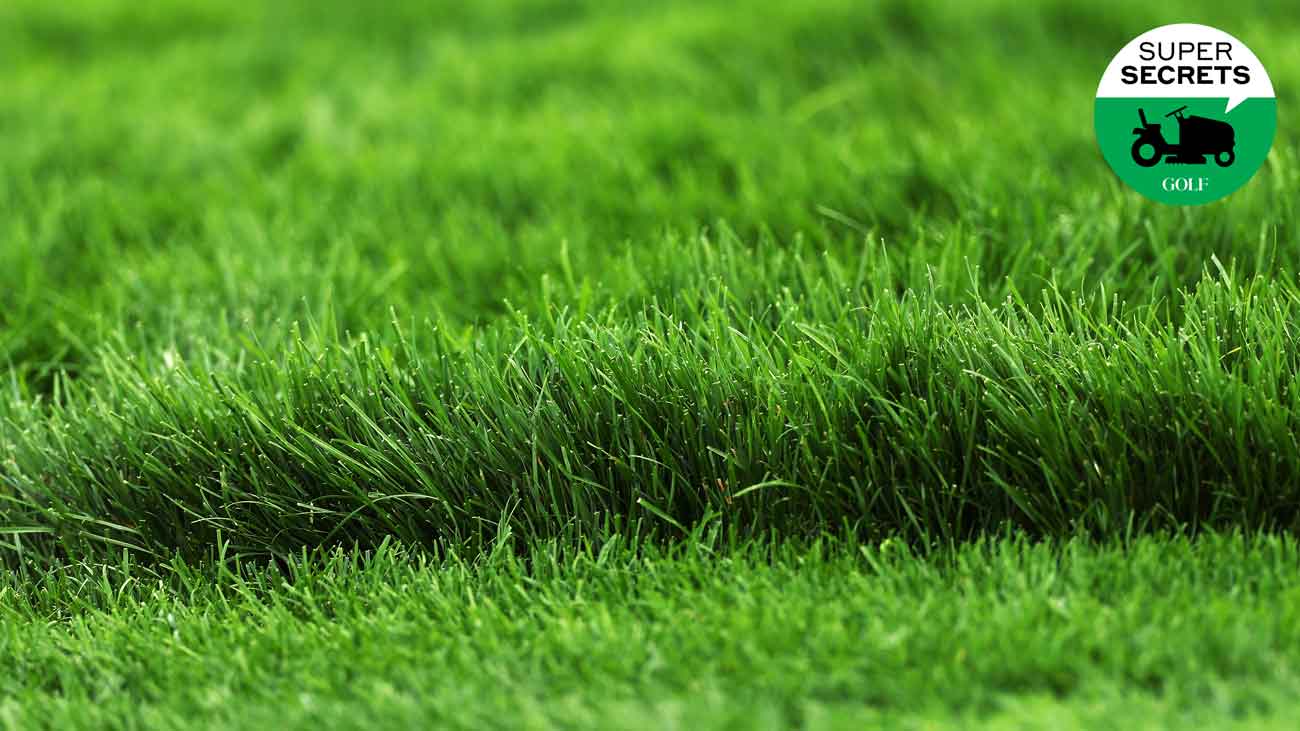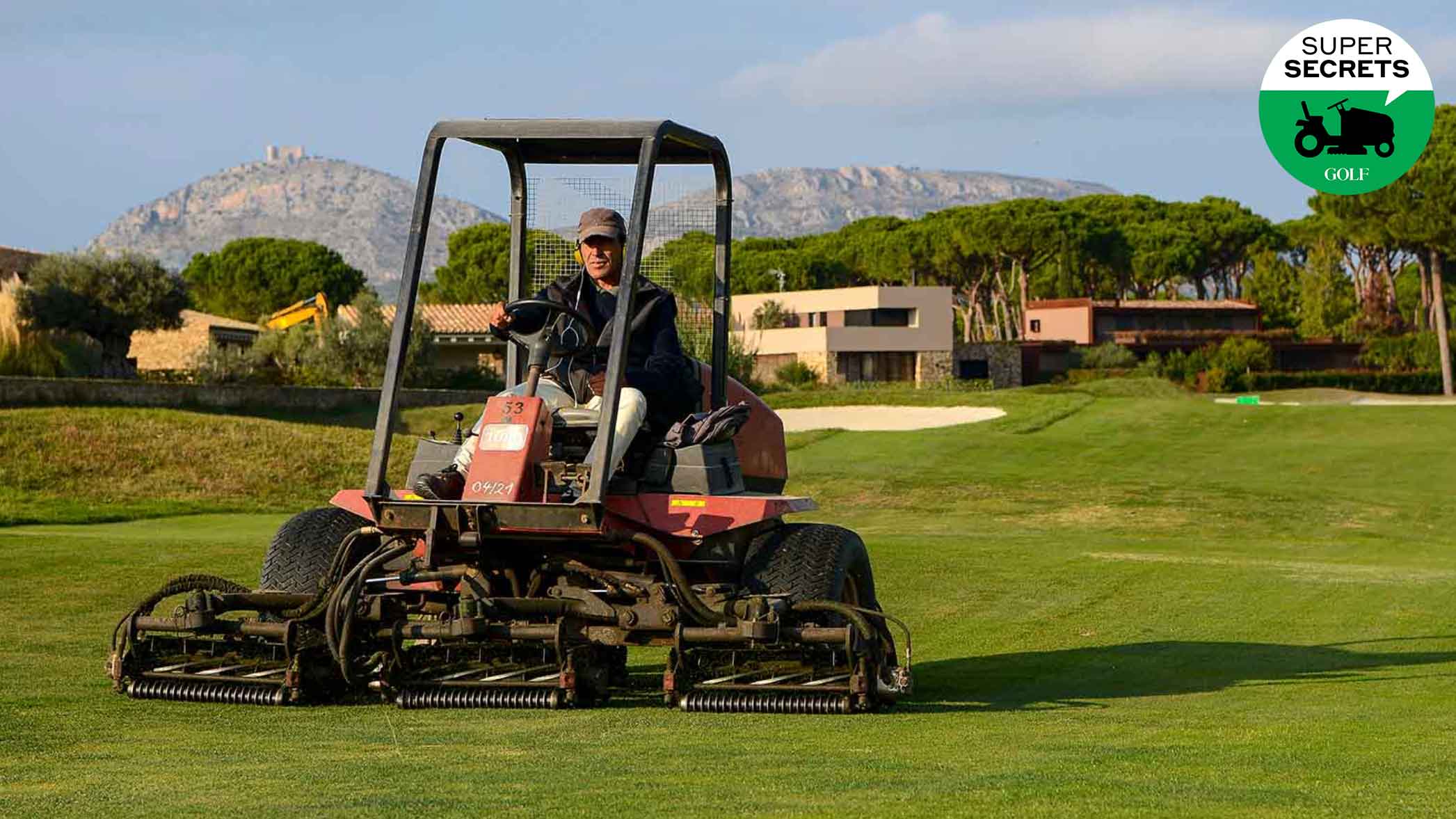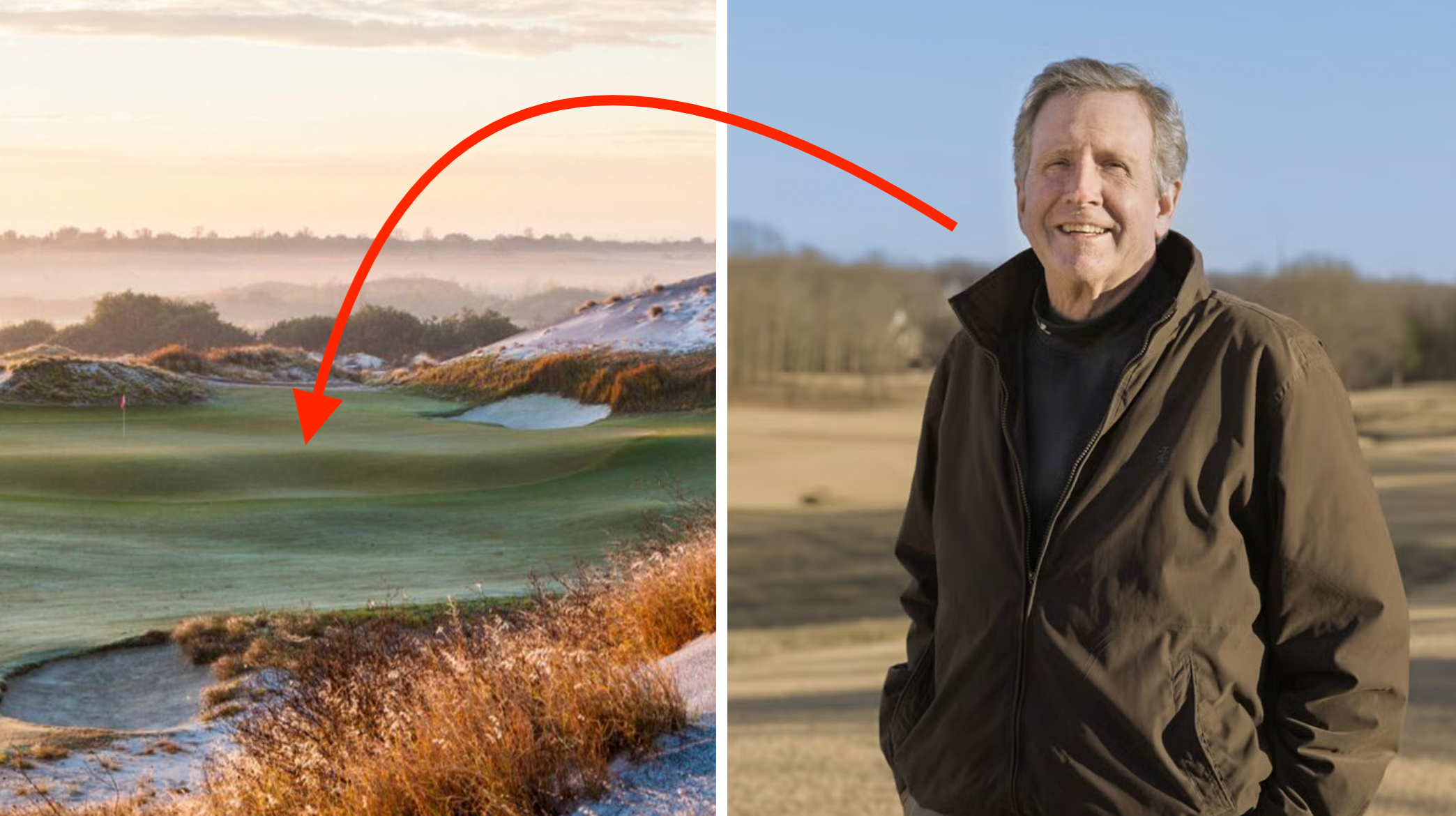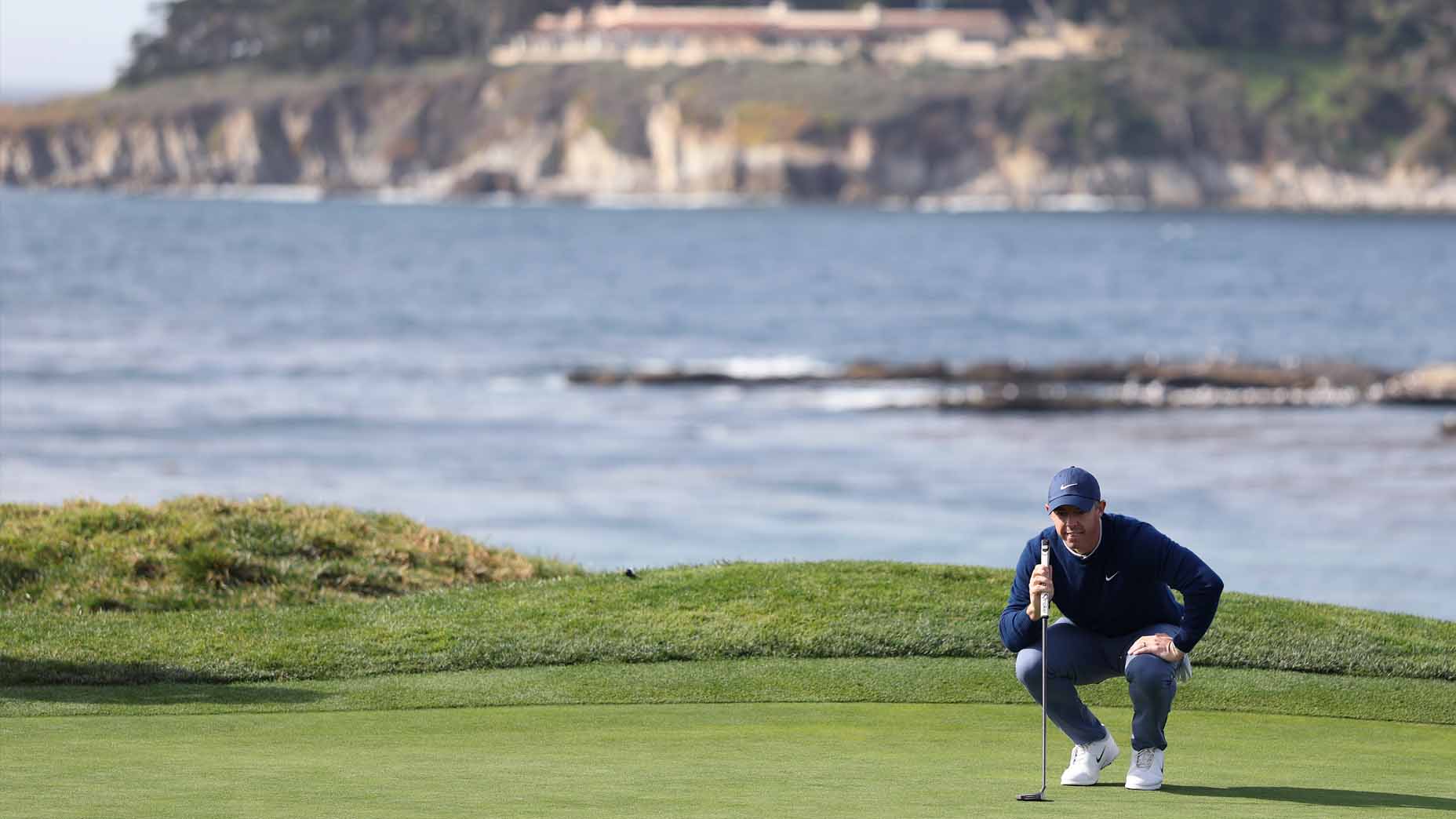Among the things you learn by following the Tour is that the pros are always tinkering with their equipment.
And not only the players — maintenance crews, too.
A reminder came this week from Monterey, in the run-up to the AT&T Pebble Beach Pro-Am, where a member of Pebble’s groundskeeping crew appeared on social media, demonstrating a nifty gizmo: a ball mark-repair device that would make MacGyver proud.
As you can see in the video below, the jury-rigged tool consists of a segment of a broom handle, with an aeration tine attached to one end and a nail sticking out of the other. To start the repair process, the groundskeeper sticks the tine into the turf and pulls out a plug, which he then seals up surgically with the nail before rolling things smooth with the broom handle.
You can't buy these in stores.
— PGA TOUR (@PGATOUR) January 30, 2024
The agronomy team at Pebble Beach is on another level. pic.twitter.com/9mZ6NxDXMg
“Can’t buy these in stores,” he says, grinning, when finished. “We make these here.”
Cool. But because this is an age of deep-fakes and other online misinformation, we wanted to make sure. Does Pebble really manufacture these tools in-house? If so, how many? Are they widely used? What’s so special about the way the work? And is there really nothing like them on Amazon?
With help from a handful of agronomic experts, including Pebble superintendent Pete Bachman, we dug up additional details.
The origin story
Yes, Bachman says, they make the tools at Pebble. They’ve been doing so for roughly 25 years, fine-tuning the design along the way. In the beginning, it was just a broom handle and a nail. The aeration tine came later. The maintenance team tried out different sizes before settling on a tine of five-eighths of an inch: just the right dimension for the plug they want to pull. Over the years, Bachman estimates that 500 to 1,000 broom handle-nail-and-tine tools have been produced. Not all of them are still in existence. But the ones that are get used every day to patch up and smooth greens on all of the courses at the resort.
What makes them special?
A golf ball is like a tiny meteor that leaves a mini-crater when it crash-lands on a green. With a standard repair tool, you can smooth that indentation. What you can’t do is repair the damaged turf. The green, in essence, has been badly bruised. Pebble’s tool solves that problem by removing the damaged turf (it’s akin to a surgeon extracting a suspect mole), leaving behind a hole that then gets stitched up with the nail. Because there’s no more damaged turf below, the green heals up more evenly.
Are they really not for sale?
Well, maybe not the precise model Pebble makes. But similar devices are on the retail market.
How many courses use similarly makeshift gizmos?
Hard to say. But Pebble is not alone. It has, however, served as inspiration. Last year, for instance, when the U.S. Women’s Open was held at Pebble Beach, Andi Meadows, an assistant superintendent at TPC San Antonio, winged in to work on the volunteer grounds crew, and used the special tool on greens after every round. “I was amazed how well they worked,” she says. Meadows was so impressed that she has been talking with her team in San Antonio about building repair tools of their own. “Haven’t quite perfected the design yet,” she says. “But I am hoping we’ll have them soon.”
In Florida, meanwhile, Mark Patterson, superintendent at a pair of courses — Legacy Golf Club at Lakewood Ranch and Serenoa Golf Club — says that he’s been tinkering with similar tools for years. His first design involved an ice pick with a square wooden handle, which he sanded down until it was round. “It definitely works, but is it the only way to do it? Absolutely not,” Patterson says. “In the end, we superintendents are pretty resourceful. We’ll do whatever it takes to get the job done.”


